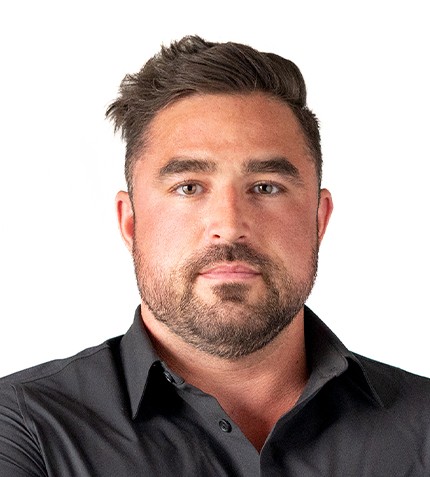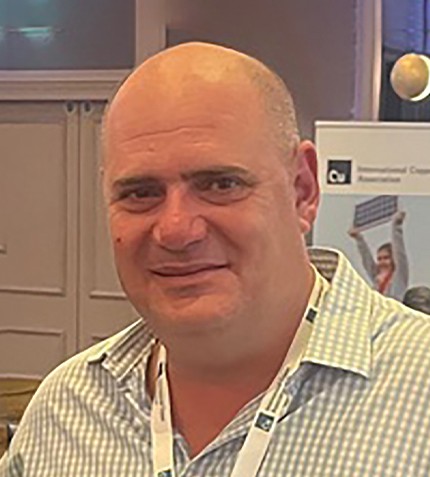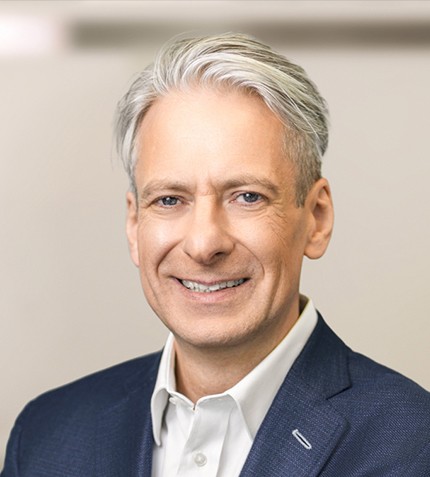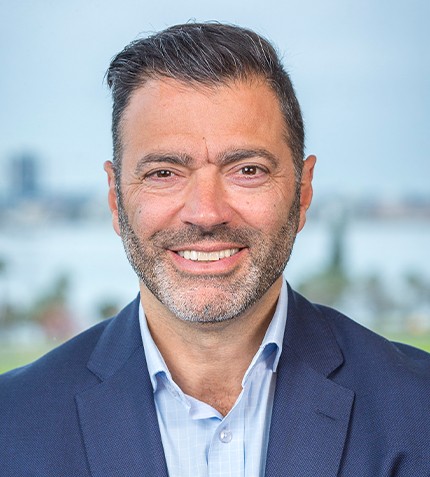
"Recent regulatory updates, including initiatives like the RIGI program, are contributing to a more attractive investment landscape, helping accelerate project development and attract new interest."
Nicolás Salgado
LOCATION DIRECTOR – ARGENTINA, WORLEY
Could you introduce yourself and give us an overview of Worley in Argentina?
I’ve been part of the company for 18 years, and for the last four I’ve served as Location Director. Worley has been operating in the country for 45 years, working closely with our customers to deliver integrated solutions across the energy, chemicals, and resources sectors. Over the decades, we’ve partnered with global customers and played a key role in the economic development of the country. This long-standing presence has allowed us to build strong relationships and navigate the complexities of doing business in Argentina with confidence.
Today, we are a team of over 550 professionals, with our main office located in Puerto Madero, Buenos Aires. We also have a long-established office in Bahía Blanca, which has supported petrochemical projects for more than two decades.
While our team is based locally, we operate as a hub of global connections. Our office is fully integrated with Worley’s global network, allowing us to draw on specialized expertise from across Latin America and beyond. This multi-office model enables us to deliver full lifecycle solutions—from early-stage consulting and engineering to construction and commissioning—tailored to customer needs.
Worley has a history of working in both oil and gas and mining. How do the two practice areas complement one another?
Our foundation in Argentina has traditionally been oil and gas, but in recent years we’ve seen significant growth in the mining sector, particularly lithium. These industries, while different, share many technical and operational synergies. Lithium projects, for example, often resemble complex chemical plants located in remote, high-altitude environments—challenges we’re well-equipped to handle thanks to our oil and gas experience.
Argentina’s diverse resource base has shaped our strategy to build multisector teams. We’ve structured our operations to reflect the multisectoral nature of the market, enabling us to respond with agility and deliver more efficient, integrated solutions. This setup fosters collaboration and innovation across disciplines, allowing us to apply proven methodologies across industries.
As a hub of global connections, our office in Argentina draws on expertise from across Worley’s international network. Our strategic relationships with companies like YPF and Shell, and our recent collaboration with Rio Tinto on the Rincón lithium project, are clear examples of how we’ve become a trusted partner across industries—helping both established players and new entrants navigate the Argentine market with confidence.
Looking forwards, what are the key opportunities that Worley has identified?
There’s significant opportunities in early-stage consulting and project development. Our goal is to support customers from the beginning—through feasibility studies, concept development, and project visualization—so that we can co-create solutions that are technically sound and commercially viable.
Argentina is experiencing a major energy boom, positioning itself as one of the key investment hubs for natural gas and oil production in Latin America. At the same time, the global demand for critical minerals—driven by the energy transition—is creating new momentum in the mining sector. Recent regulatory updates, including initiatives like the RIGI program, are contributing to a more attractive investment landscape, helping accelerate project development and attract new interest.
What are the main challenges of the procurement market in Argentina?
Argentina’s procurement landscape is dynamic and evolving. While some suppliers are still maturing, many have demonstrated strong capabilities and are ready to support large-scale projects. As an EPCM contractor, our role is to guide customers through this complexity—helping them identify the right partners and make informed decisions.
Local content requirements also play a key role. Foreign companies must collaborate with local entities to comply with regulations, and Worley’s long-standing presence and network in Argentina make us an ideal bridge between global standards and local execution.
How have recent regulatory overhauls in Argentina impacted the natural resources sector?
Recent regulatory changes have introduced greater clarity and stability, essential for long-term investment. In the past, navigating currency controls and compliance frameworks required creative problem-solving. Over the last three years, we’ve focused on adapting to these challenges while maintaining delivery excellence. Today, the environment is more conducive to strategic growth. We’re shifting from very challenged context to a thriving investment and expansion environment —exploring new opportunities, optimizing operations, and enhancing our value proposition for customers.
Recent policy changes under the RIGI program have opened the door to more favorable investment conditions, attracting a unique volume of new projects and enabling market entry for new players. Combined with Argentina’s vast natural resource base, these changes have helped the country position itself as a relevant player in lithium carbonate and copper production in the region. This shift is already generating momentum across the natural resources sector, and we’re working closely with our customers to help them navigate this new landscape and capitalize on emerging opportunities.
In terms of the next year, what are the major milestones that you are looking forward to at Worley?
We’re working closely with several customers on projects that are approaching final investment decision (FID), and we’re developing execution strategies that integrate Worley’s global capabilities. These are key moments where our ability to deliver value at the early stages and consistently becomes critical.










